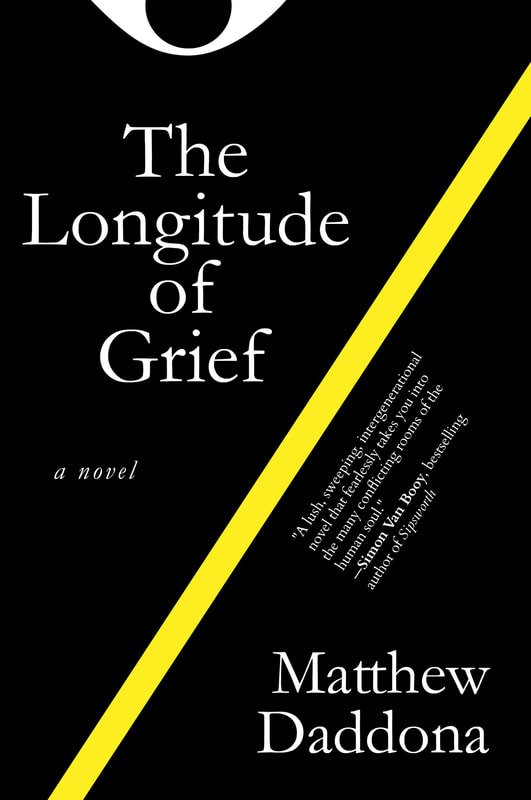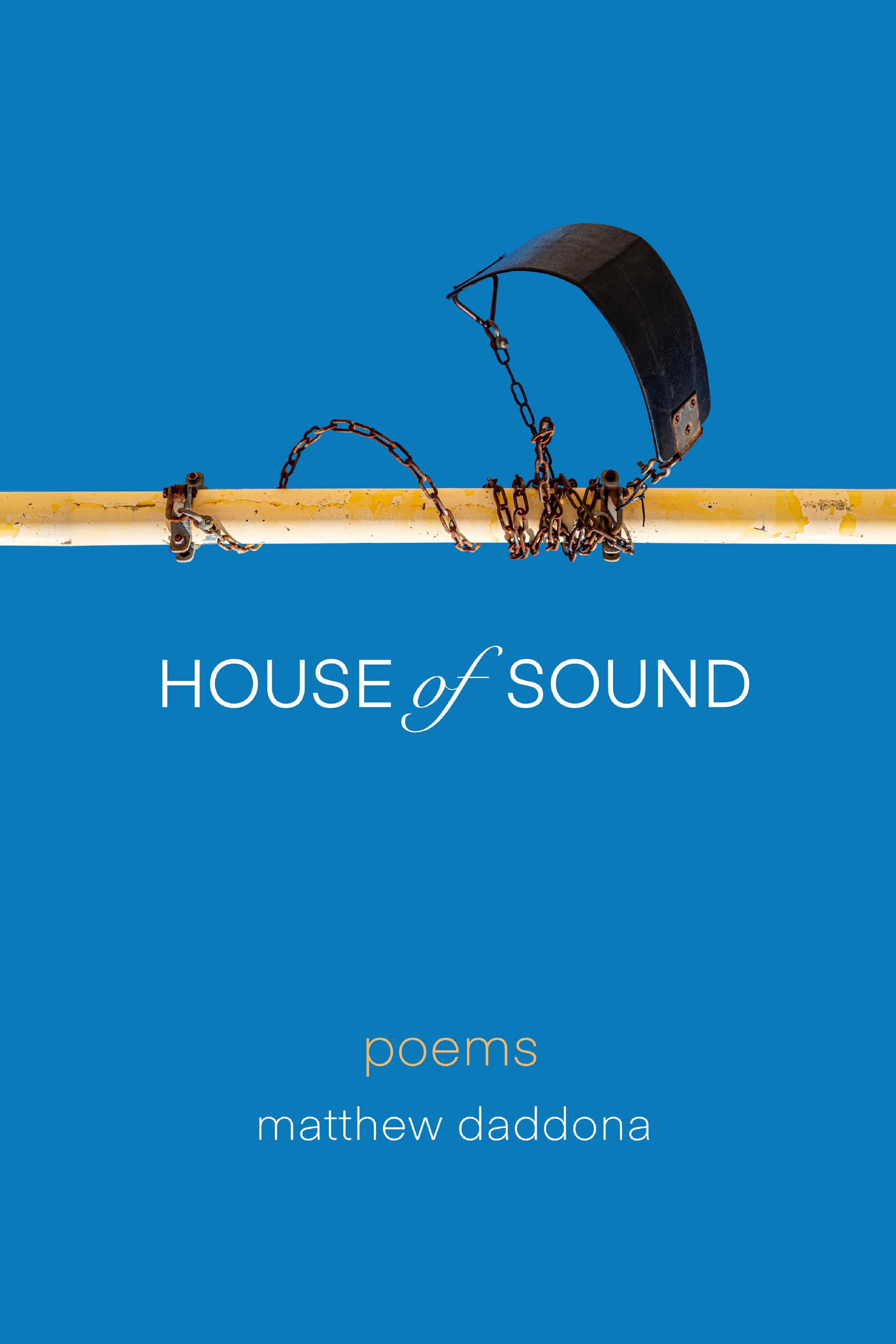the longitude of grief
In this poetic and philosophical debut novel that author Helen Phillips called “a mesmerizing read…rich with melancholy beauty and emotional acumen,” Henry Manero and several generations of dispirited loners explore the familial bonds than entangle and entrance us all.
Select Press for The Longitude of Grief
Kirkus Reviews: Review of The Longitude of Grief
Matter of Spark: “The Longitude of Grief”
WLIW-FM Heart of the East End: “Matthew Daddona”
The Suffolk Times and The Northforker: “Southold native to release debut novel next week”
Largehearted Boy: “Matthew Daddona’s playlist for his novel ‘The Longitude of Grief’”
Drinks with Tony: “Matthew Daddona" #276”
Armed With A Book: “Matthew Daddona on Being an Acquisitions Editor”
What Is That Book About: “Q&A with Matthew Daddona, The Longitude of Grief”
Readers’ Favorite: Review of The Longitude of Grief
Shepherd.com: “The Best Philosophical Novels I Can’t Stop Thinking About”
Floyd Memorial Library Podcast: “Episode 64 with Matthew Daddona, Ghostwriter and author of The Longitude of Grief”
Praise for The Longitude of Grief:
“A multi-generational coming-of-age story beautifully crafted with language and setting that evoke Tom Drury or Barbara Kingsolver’s Demon Copperhead. The poetry pulls us in and the finely drawn array of characters keeps us glued to the page until the very end.”
—Bethany Ball, author of The Pessimists
“In The Longitude of Grief, Matthew Daddona traces the complex connections among a boy, his family, and his community. This dark coming-of-age tale explores the ebb and flow of intimacies and betrayals in a small town over the course of the years. Daddona’s debut is rich with melancholy beauty and emotional acumen. A mesmerizing read.”
—Helen Phillips, author of The Need
“A lush, sweeping, intergenerational novel that fearlessly takes you into the many conflicting rooms of the human soul.”
—Simon Van Booy, bestselling author of Sipsworth
house of sound: poems
In these twenty-eight poems, Daddona ruminates on domesticity and modern-living in attempt to discover truth within silence and hope within noise.
Select Press for House of Sound:
Publishers Weekly: Review of House of Sound
Literary Hub: “A Poetic Structure Built on Many Voices: Talking to Matthew Daddona”
The Kenyon Review: “Subverts expectations, changes keys, dives into minor”: A Conversation With Matthew Daddona
The Chicago Review of Books: “Poems to Settle into in ‘House of Sound’”
The Suffolk Times: “Putting poetry in motion, Southold grad’s work to hit book stores next month”
Praise for House of Sound:
“I can’t remember where I heard it but I heard someone say, when referring to the music of Miles Davis, that he played the ‘sound of jazz.’ When I read Matthew Daddona’s book of poems, House of Sound, I have to say, “The poetry of Matthew Daddona is the sound of poetry.” It is. Daddona’s poems are sonically and visually brilliant. I mean brilliant, twofold. One, they light up the world. Two, they are exist in a domain of magical surprise. There are the little moments of lyrical beacons like, “The roof is aflutter./Michael calls/Starlings, Darlings,” and then there are the large heart monasteries like, “I know this: sound can make/a heart break like glass/and that there are two sounds/for every/one heart.” That is what this book is, a heart monastery, and each poem has a least two sounds for its one big heart. Within the sound of his poems there is a silence, and in this silence, there is a world of image and light, big light, that sweeps across the landscape of human experience and implores you to listen. When you read House of Sound, listen aflutter. Read these poems to yourself. Read them out loud to yourself and then quietly to your beloved. Be beloved with these poems so you can be beloved with the world.”
—Matthew Lippman, author of Mesmerizingly Sadly Beautiful (Four Way Books)
“It takes a lot to say I love you, I mean it / and mean it,” says the speaker in Matthew Daddona’s rich and impactful debut, House of Sound. These poems articulate not just love as an act, but also absence, longing, and philosophies, all as a measure of life and its relevance. To stay or to go? This is the central question that haunts the speaker. And when one goes, is one ever really gone? These poems ring with questions: “I want their wings. I want their answer.” In sound, memory, and the lack thereof. In life, love—and the lack thereof. This collection is an exciting example of language as meditation, mediation, and conciliation, as well as action. To write, to love, to understand, to contemplate—these are all verbs that require action and attention. Attend to the quiet yearning in these poems. Attend to the way these beautiful poems move through the body as heartsong, as a form of human touch.”
—Chelsea Dingman, author of Through a Small Ghost, winner of The Georgia Poetry Prize
“Matthew Daddona's intimate inhabitation of grief gives us a mother, returns her to us briefly in the breath between lyrics, in the haunted landscape of loss, in the shadows that cling to a wife and children. The work of memory is this delicate reconstitution, a tenuous, shameless tendering of awe for life in the country of loss.”
—Alina Stefanescu, author of Every Mask I Tried On
“Matthew Daddona’s House of Sound takes the reader to a contemplative space that only the best poetry can. Daddona’s dexterous command of language unfurls into stanzas of startling insight. Daddona’s writing is crystalline, alternating between existential long shots and close-ups of moments so intimate and well-drawn they will break your heart. House of Sound is as smart as it is sensuous, as metaphysical as it is touching. I recommend this book to all the searchers out there.”
—Caroline Hagood, author of Ways of Looking at a Woman and Having Maxine’s Baby
“House of Sound is an exploration on modern living: its conversational nature makes the reader feel like they are the characters, right in the story and world the speaker brings us into. The anxieties over existing, personal bonds and relationships, and existential dread are all too familiar and comfort us as we try to find ourselves nudging from darkness into light, from isolation to kinship.”
—Joanna C. Valente, author of Marys of the Sea and editor of Yes Poetry




